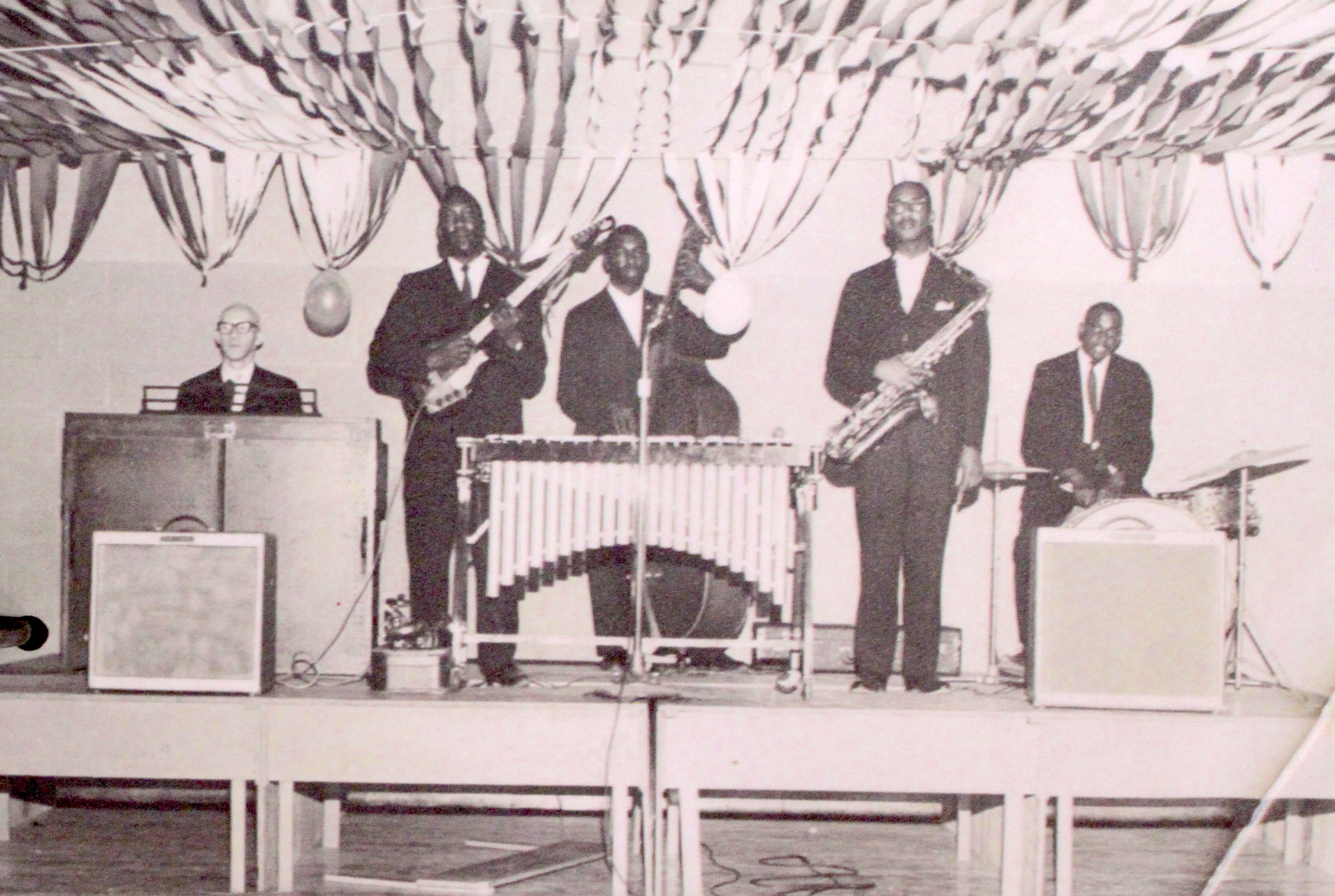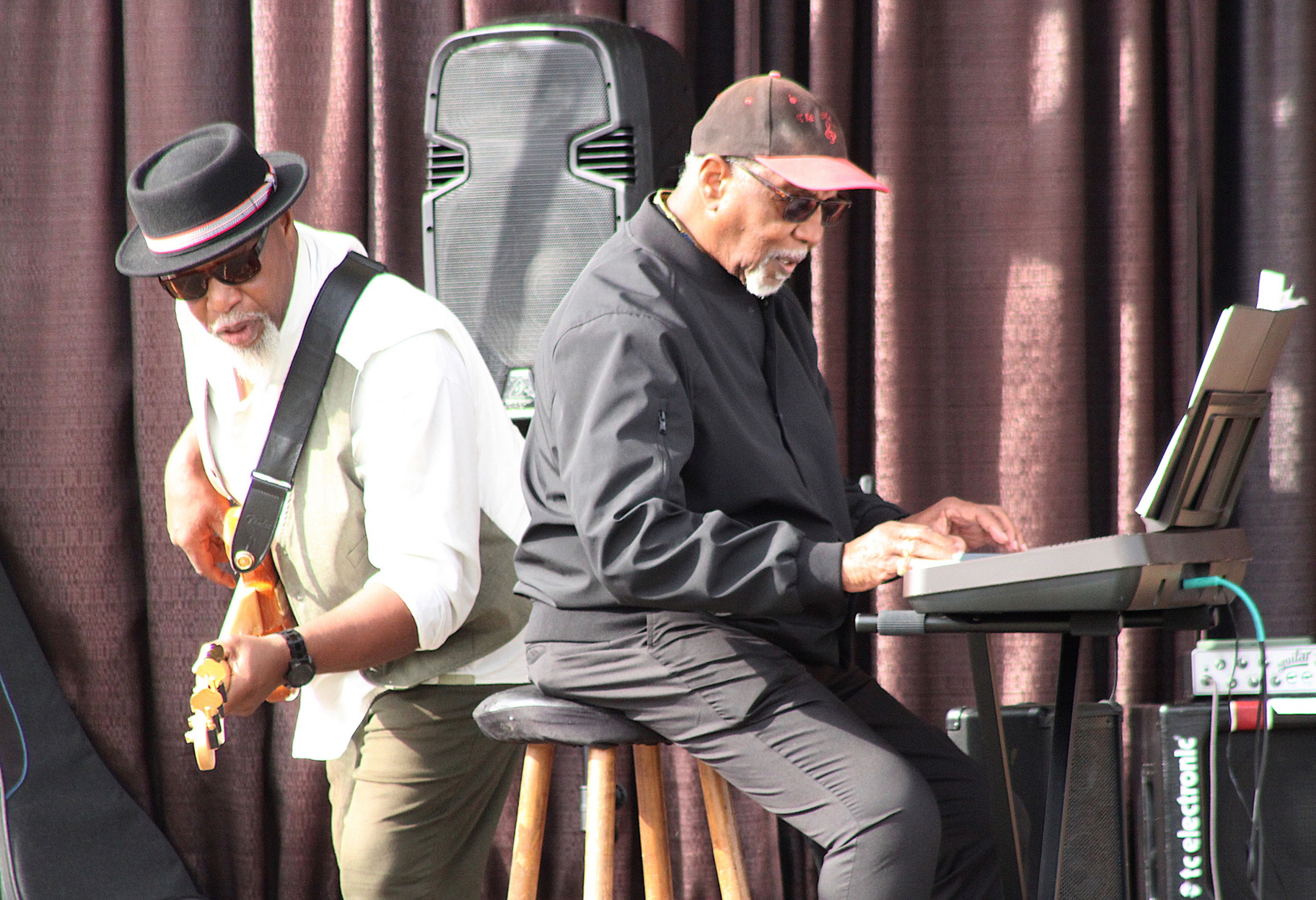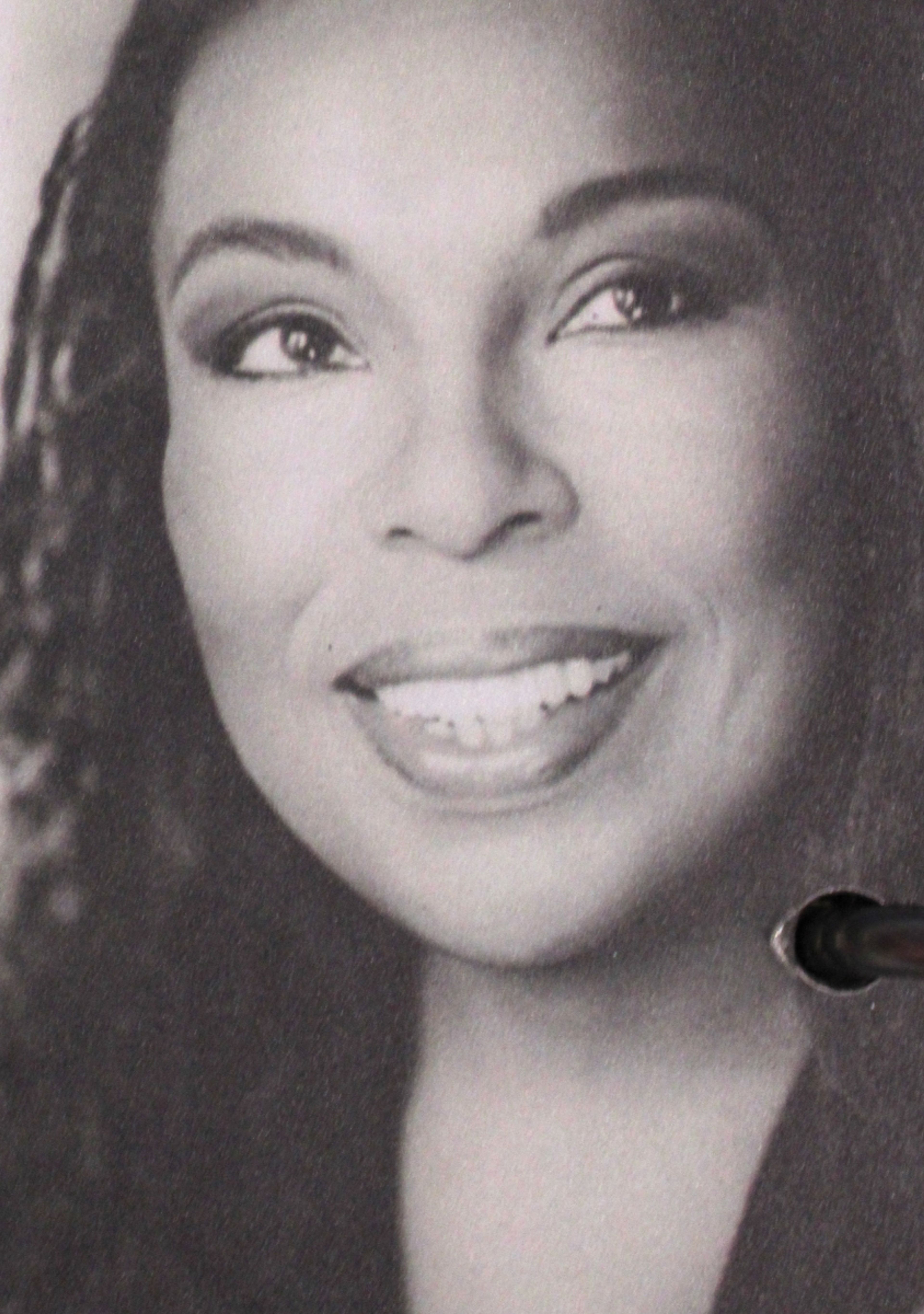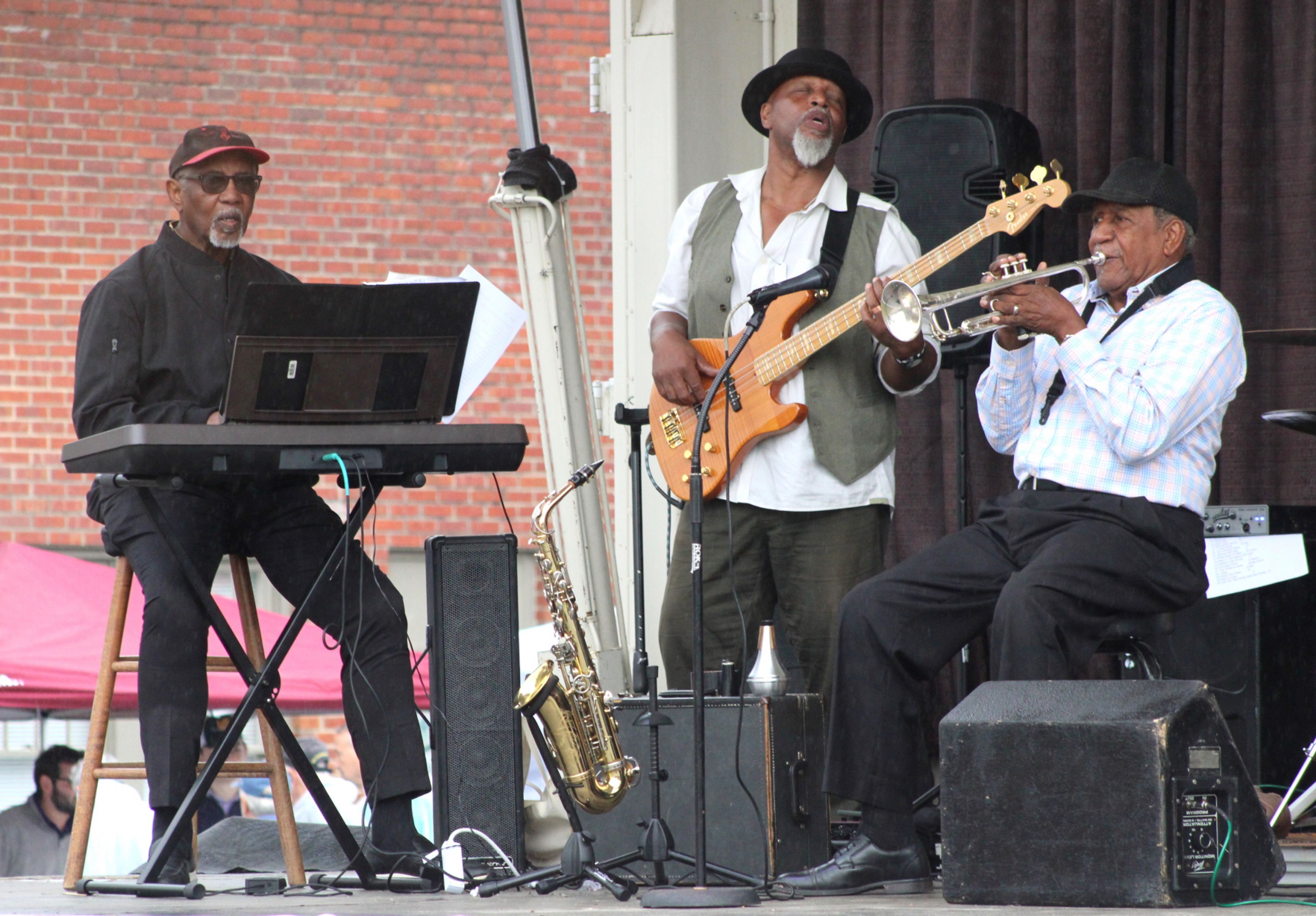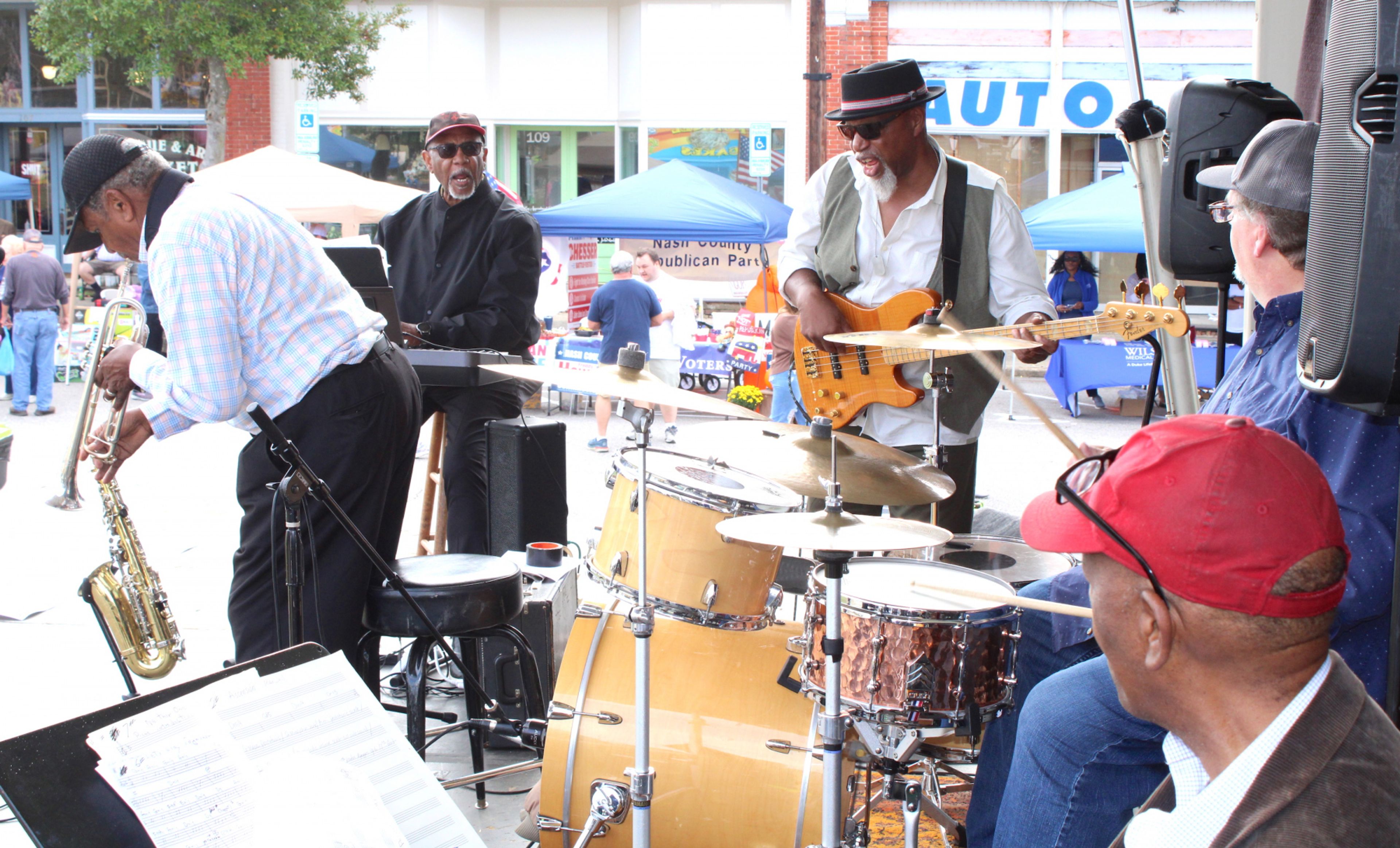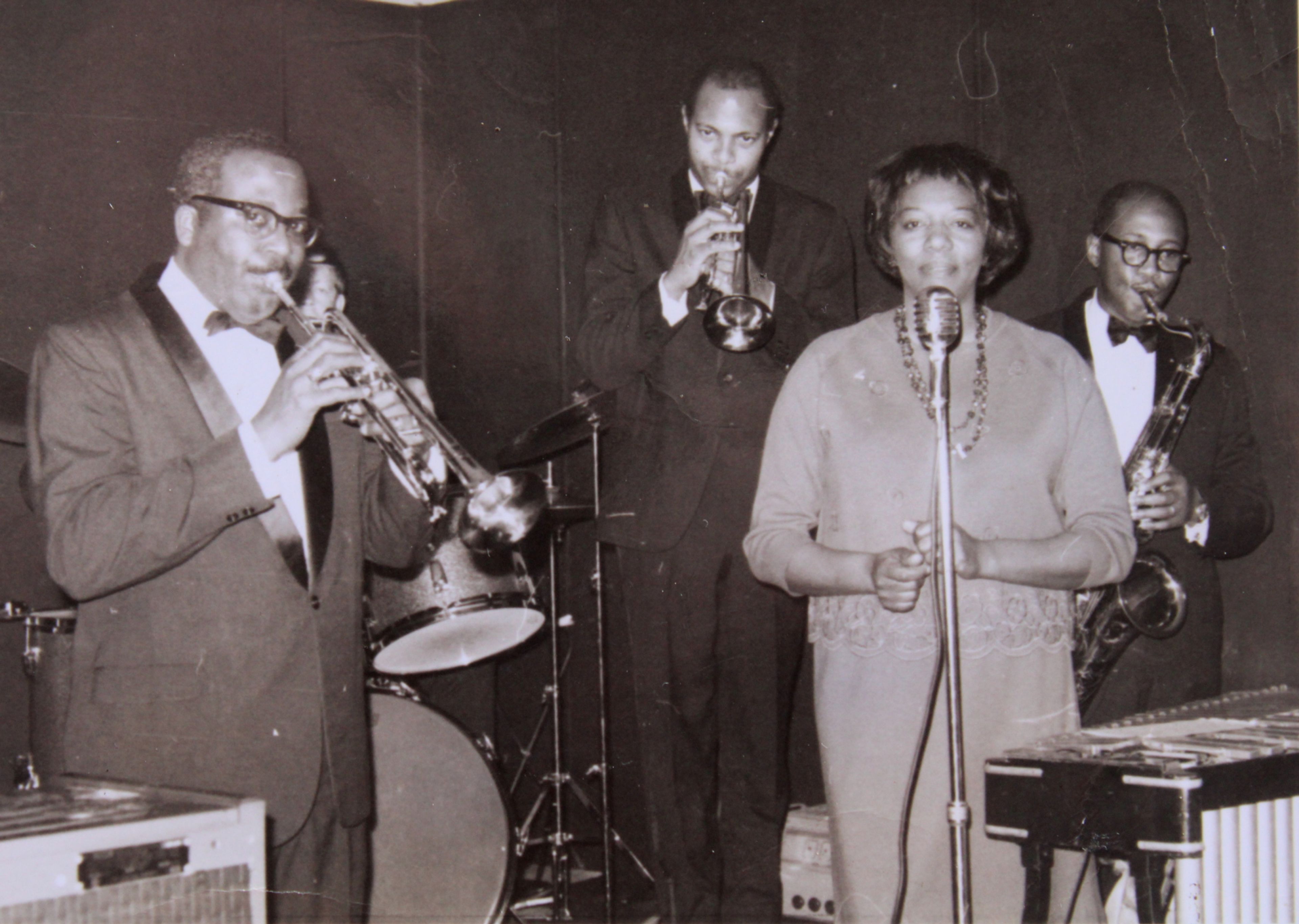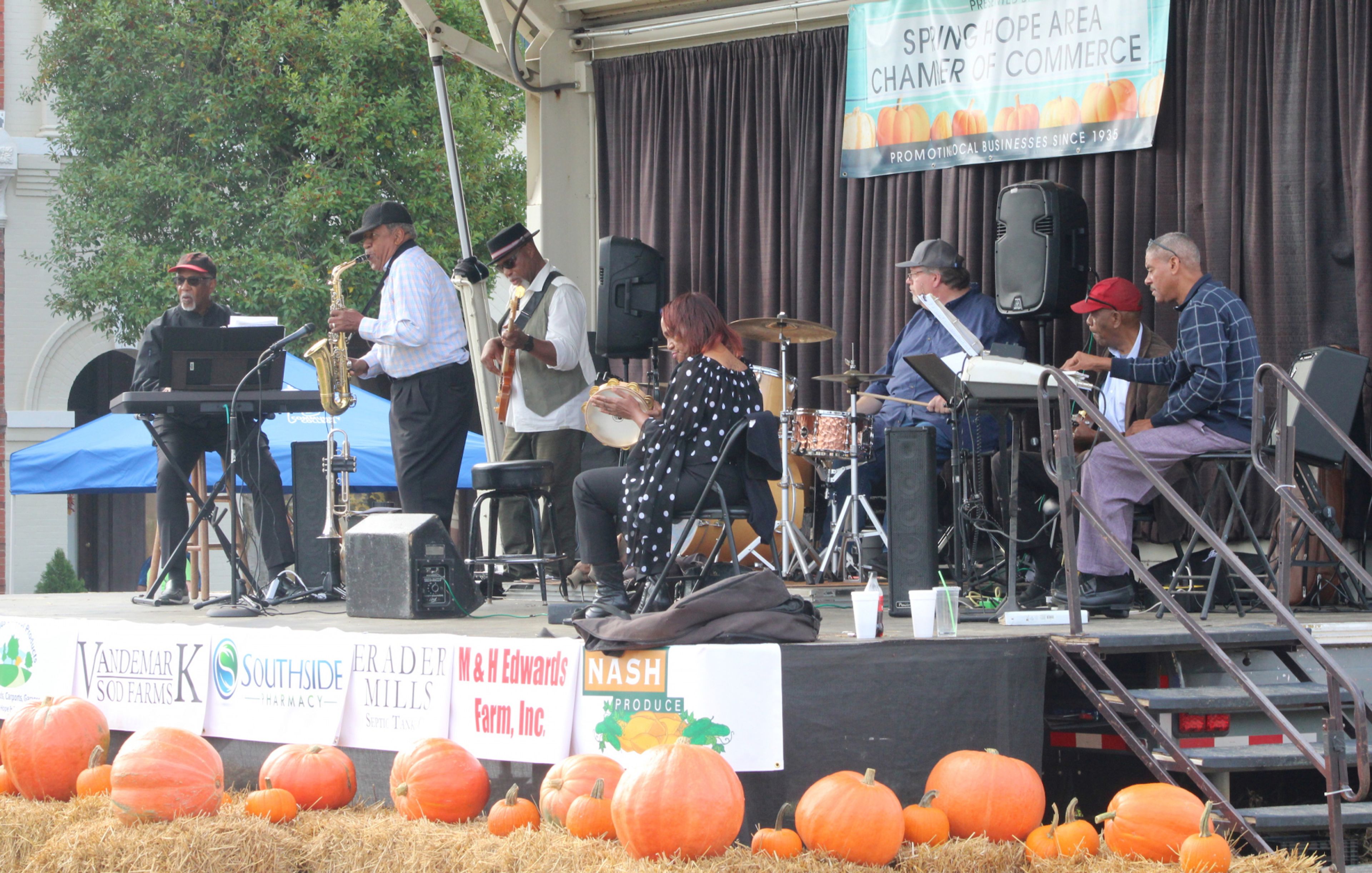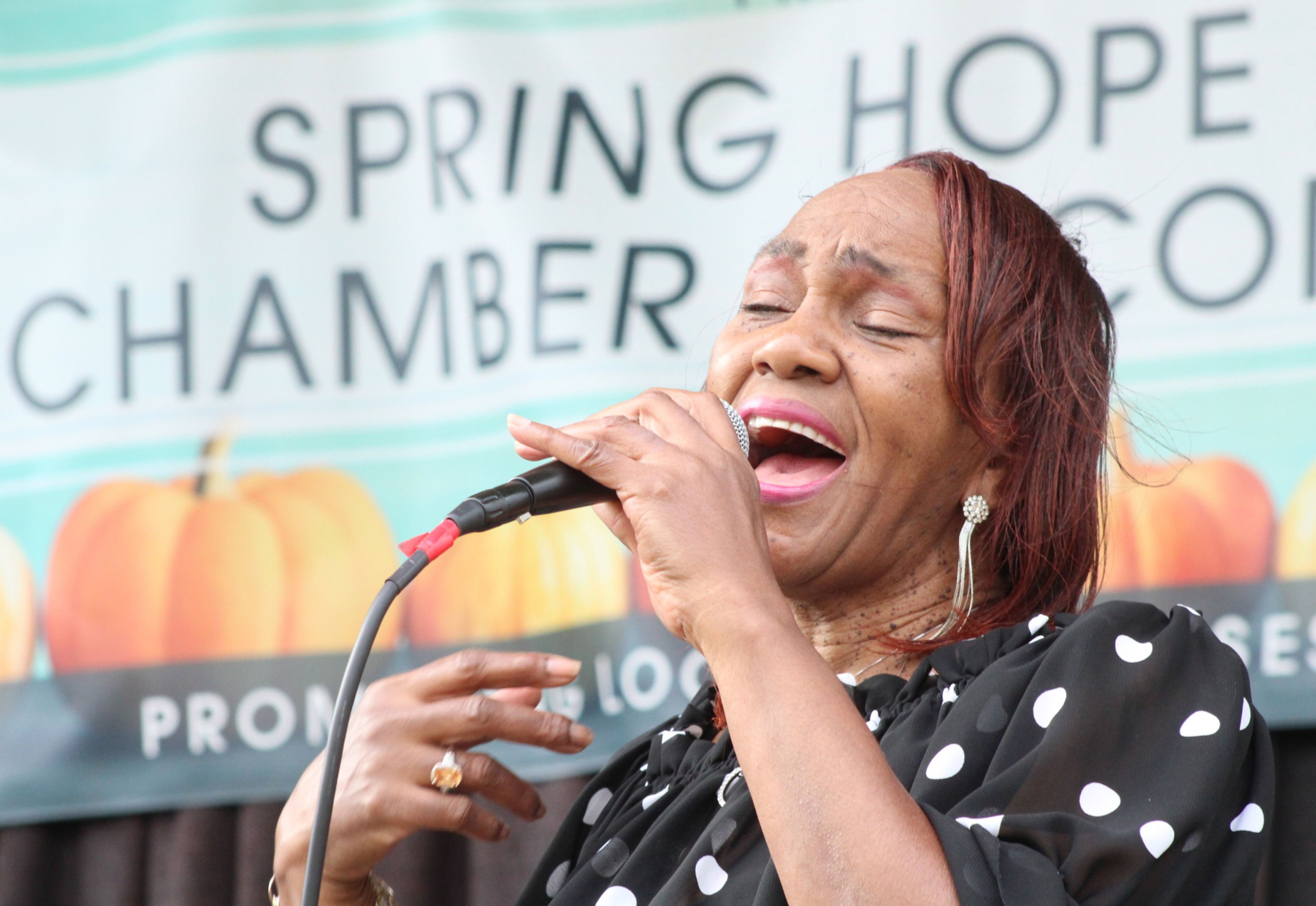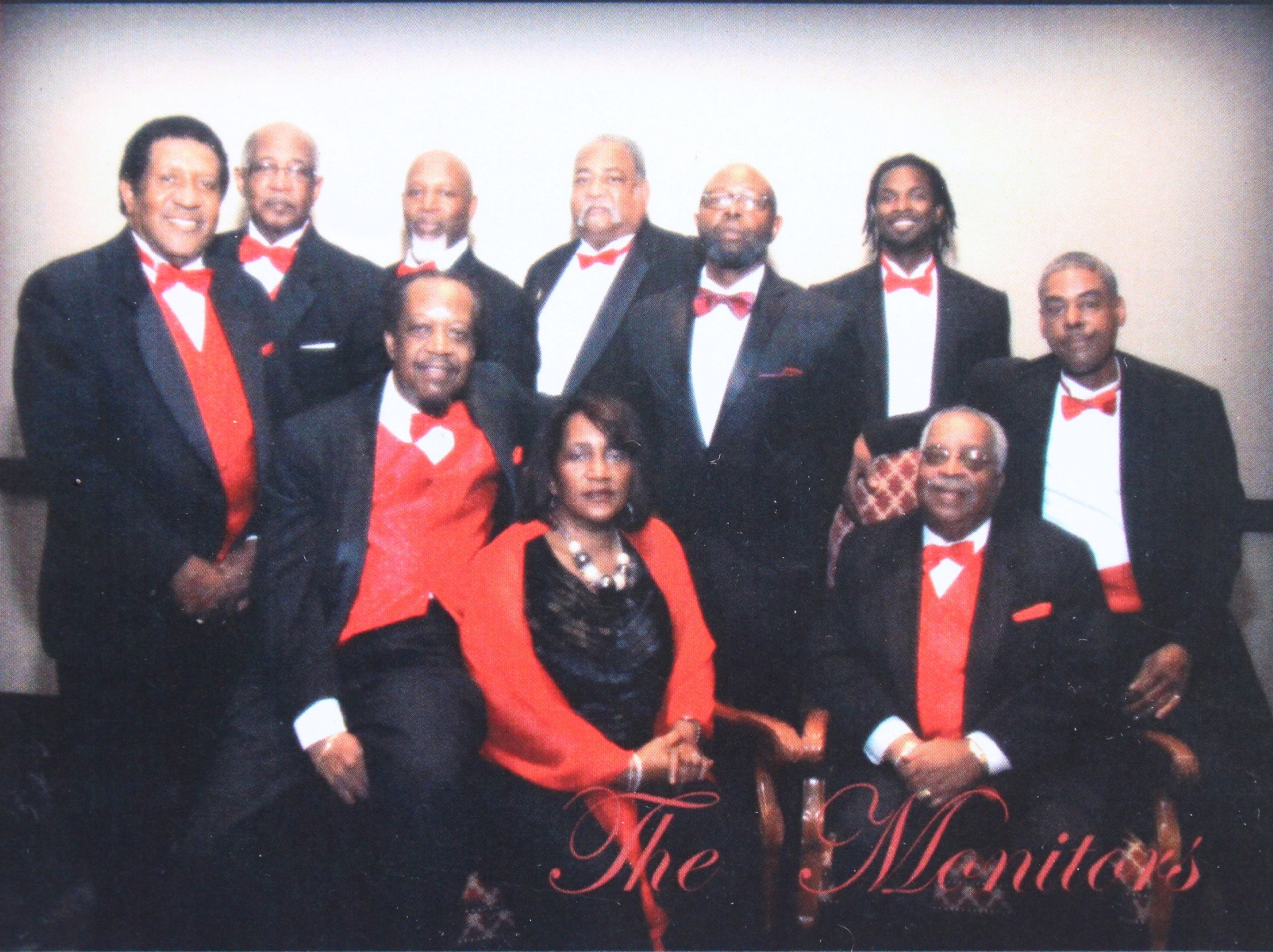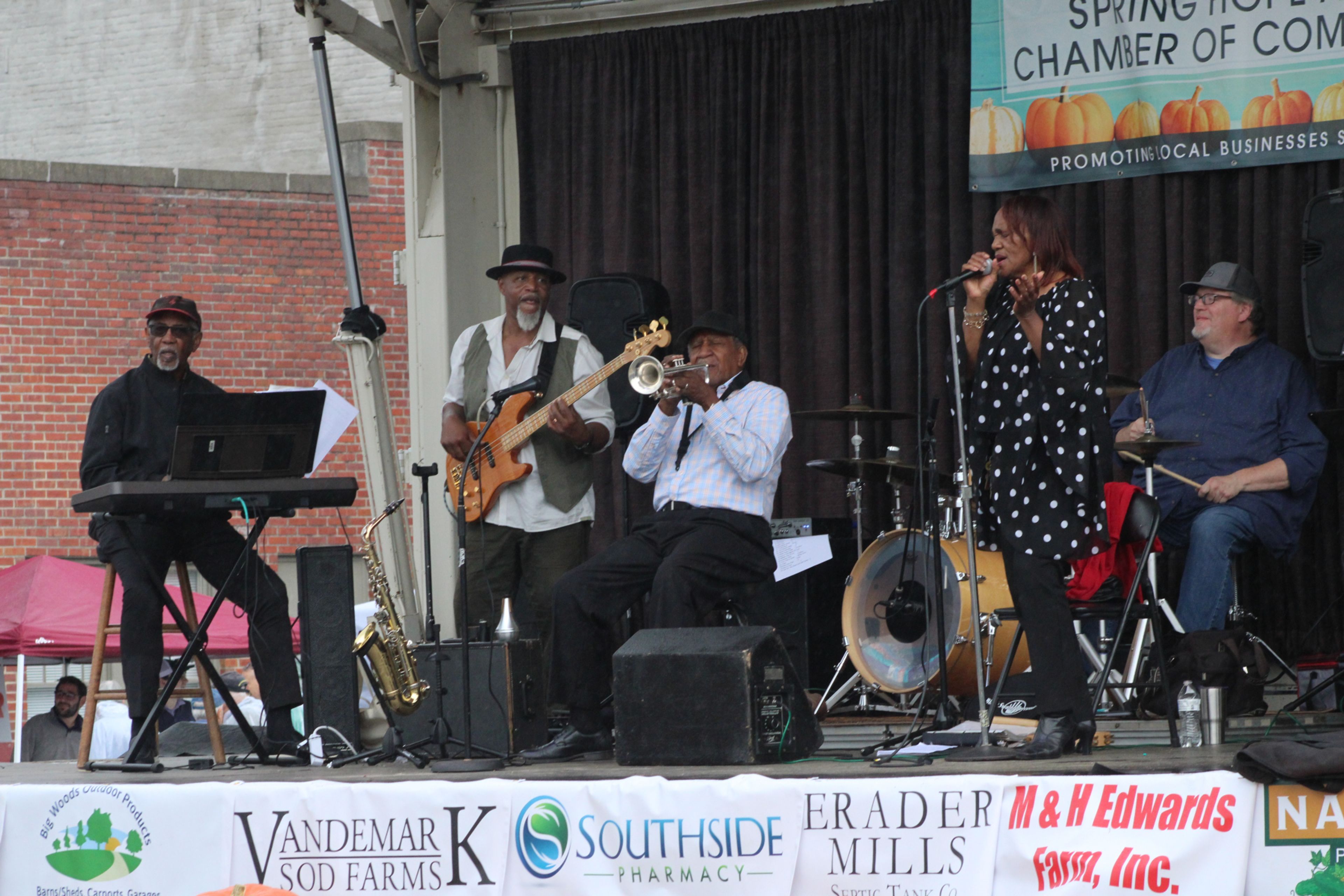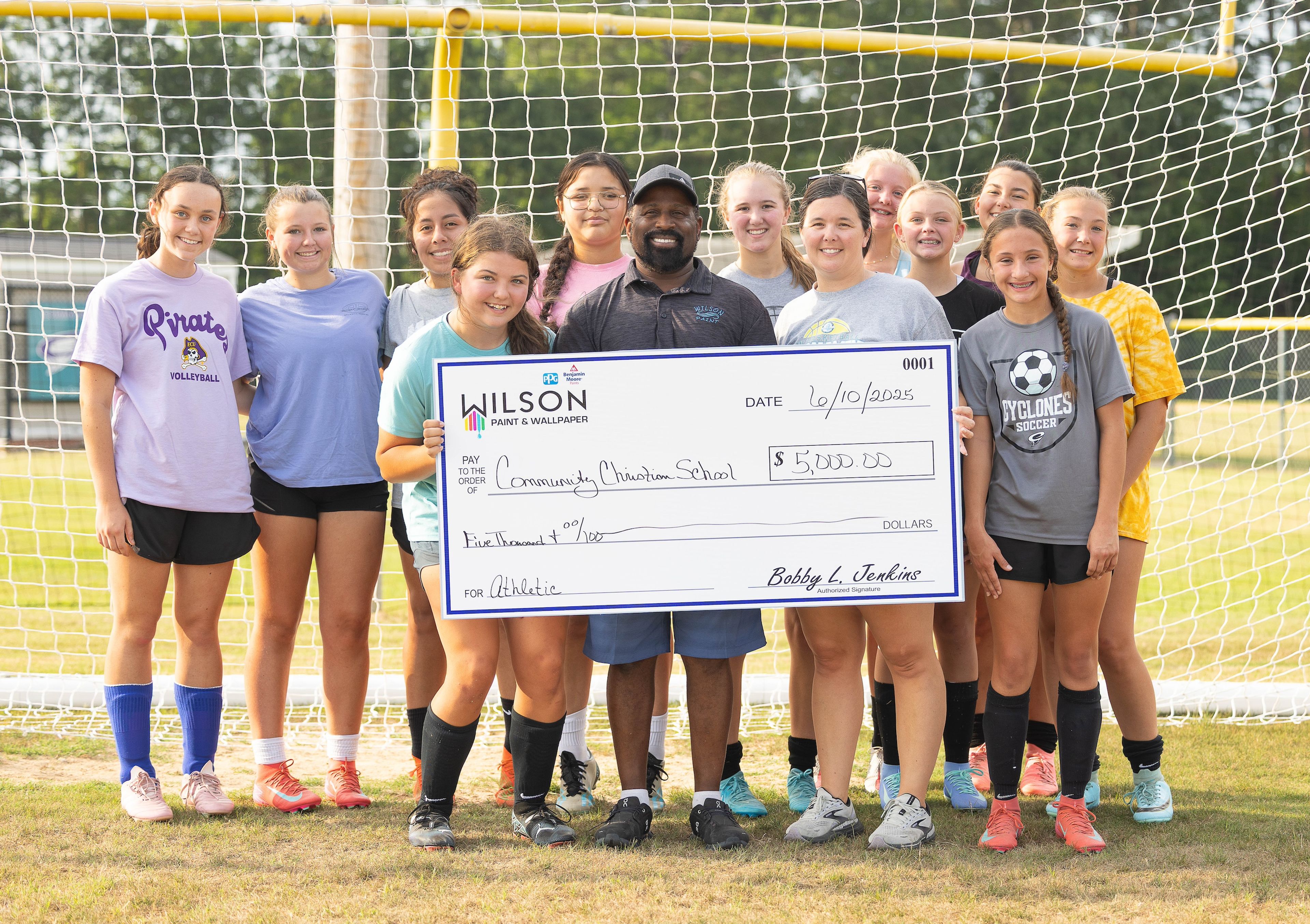The Monitors end 66-year musical legacy
"The Thrill is Gone" was on the song list for The Monitors' performance Saturday, but for bandleader Bill Myers, the thrill will never be gone. The Wilson-based band played its last gig at the Spring Hope National Pumpkin Festival, wrapping up a 66-year musical legacy. "The Monitors are finished," Myers said Monday from his Wilson home. "We have had a […]
"The Thrill is Gone" was on the song list for The Monitors' performance Saturday, but for bandleader Bill Myers, the thrill will never be gone.
The Wilson-based band played its last gig at the Spring Hope National Pumpkin Festival, wrapping up a 66-year musical legacy.
"The Monitors are finished," Myers said Monday from his Wilson home. "We have had a good run. I thanked all the guys Saturday for being there. I told them I love them and we have had a good life together. We have been everywhere and done well. The time has come to pass it on."
Myers, 90, and Cleveland Flowe, who died in 2015, formed the group in 1957.
The name came from "Monitor," a nationwide weekend radio program broadcast on NBC that had an eclectic format mixing news, weather, sports, comedy, music and celebrity interviews.
"The idea was that we wanted to organize a band that could play all kinds of music," Myers recalled.
That would include rhythm and blues, cha-cha, merengue, waltz, jazz, polkas — whatever the people wanted.
"We used to get all those requests," Myers said. "We wanted a band that would be different, one that could play anything that you came up here and asked about, even if it was a Bach fugue."
READY TO ROLL
Myers, a tenor saxophonist and band director at Frederick Douglass High School in Elm City at the time, and Flowe, a piano player and band director at Charles Darden High School, started looking for musicians who had the skills that would enable the group to play a wide variety of music.
They added Wilson bass player Charlie Farmer, Washington drummer Charles Manuel and guitarist Clarence Harding.
"That was the nucleus of our group, and then, of all things, Roberta Flack takes a job in Farmville at H.B. Sugg High School," Myers said. "We contacted her and she agreed to come on and be our vocalist. So we were a dynamite group. We were ready to roll."
Myers said Flack was wonderful and unique.
When the band was taking a break, Flack would sit herself down at the piano and play right through the intermission.
"She was a classically trained pianist, a heck of a vocalist, very knowledgeable about music theory and all those kinds of things, and she just loved music," Myers said.
He added that Flack sang "like it was coming out of her soul."
Myers said Flack was always very intuitive, once offering constructive criticism of the young Myers after a long saxophone solo.
"She said 'Bill, you are playing a bunch of notes, but you didn't say anything.' Boom. It hit me right in the face," Myers recalled.
Myers said Flack's observation was spot-on.
"Somebody needed to say that to me, that if I am going to take a solo, make it meaningful," Myers said.
FIVE-DOLLAR GIGS
In the early days, The Monitors played everywhere.
The band played in Nags Head, Fayetteville, Greenville, Greensboro, Chapel Hill and all over.
"We loved to play," Myers said.
Sometimes it was a 60/40 gig, where The Monitors would get 60% of what was collected at the door and the house band would get 40%.
"We took a lot of those jobs just to be playing, and then people would call us just to hire us," Myers said. "Sometimes we had enough energy to play two gigs in the same night."
The take was very low most of the time.
"In those days, if we made $5 apiece, that was all right, but if we made $10, that was a glorious gig," Myers said. "That $10 would go a long way at that time. Gas was 35 cents a gallon."
In addition to their versatility, The Monitors were different because they were dependable.
"We were the band that would show up on time. We were the band that would be dressed, which was very important," Myers said. "We were the band that was going to quit on time. We were the band that wasn't going be hell-raising or starting a fight or something. We were nice guys."
'IT'S MUSIC'
The Monitors had enough tunes in their songbook that they could play melodies that suited all tastes.
Myers said many of the band's audiences were all white, especially at the country clubs, and the white audiences would be the ones who asked for the waltzes and the polkas and the cha-cha.
"The Black audience wanted the Caldonia and rhythm and blues, but we knew that," Myers said.
In the early days, audiences were never mixed, Myers said.
"Eventually that started to change and audiences would be Black and white, and now we would have a thing here where we have got to play a mixture of both," Myers said. "The white audiences would start dancing to what people called the Black music, and then the Black people would start dancing to what people called the white music. It went on like that, and it just reemphasized the point that music has no color. Music has no color. It's there for everybody to enjoy. You don't come up and say, 'Oh that's white and that's Black.' No, no, no, no. It's music. It's the same old 12 notes that you play on everything."
POPULAR TUNES
Looking back, Myers said it's hard to name one tune that was the most popular, but several are contenders.
"Somewhere My Love," the theme from the movie "Doctor Zhivago" was a hit for years.
"They would ask for it every Saturday night," Myers said. "Everybody wanted to hear it."
Then there was "Yackety Sax." Myers said the band couldn't play it enough.
Later, it was "Mustang Sally" and "Mister Magic" and "Chameleon."
The Monitors performed songs from movies, like the theme from "Shaft."
"It's not that is was danceable, but it was recognizable, and people wanted to hear us play it," Myers said.
Myers said the band's song list was so deep, they could pull out tunes from the 1930s on request.
"And then you have to be acute enough to keep up with today, like playing some hip-hop," Myers said. "We knew that to be a viable group, we had to play some of that. We had no choice."
Myers said "The Electric Slide" always got everyonbe onto the dance floor.
Sometimes it was requested two or three times a night.
"It has been a crowd-pleaser," Myers said. "Everybody knows it. They would be four or five deep out there dancing to it."
COVID 'KNOCKED US OUT'
For most of their years, The Monitors would play two or three times a month.
Then came the COVID-19 pandemic.
"COVID really knocked us out. It canceled every job we had," Myers said. "We lay dormant for two years, and the recovery has been difficult. People just don't call us to play anymore. Some of them think we are too old to play. I know that is certainly part of it."
Myers said he could see the end coming for the group as requests for performances dried up.
"Our drummer, Sam Lathan, who played with us for many years, decided to retire," Myers said. "He's 93 or 94. He retired his drum set and that meant we had to go find another drummer. We have had several deaths. I am the only original Monitor left."
Myers said age had something to do with it also.
"I remember we played a dance hall in Kinston, and some of them were saying 'Who are these old dudes up here playing?' Then we were hired one day to play a prom in Pitt County, and when we got there, the students saw us unloading and they got really upset. They said, 'I don't want them old dudes playing for us.' And they were gong to boycott the prom. They started walking out. We hadn't even played a note. We hadn't even set up. But we were old-looking."
Additionally, it kept getting harder and harder to hire musicians.
The business part of the group, which Myers handled, had gotten more difficult.
To compound matters, Myers' wife has developed serious vision problems.
"Right now, that's my job — to take care of her," Myers said. "So all of this has played into that decision. I could feel it coming, and it's time."
Myers extended a huge thank you to all of the band's supporters over the years.
Myers said it's a bittersweet ending to The Monitors' run. He said he will continue to play solo or in small ensembles.
"I love playing," Myers said. "I won't stop playing until I don't take another breath."
